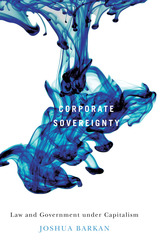
Not since Don DeLillo and George Saunders has a writer caught the humor and irreverent seriousness of our time like Barkan has through his protagonist Paul Berger, a flawed hero whose so-called fate drives him toward enlightenment just as surely as it propels him to destruction. Berger is stunned when he receives an ominous palm reading from a savvy guru at a health retreat in Iowa, of all places. And now it seems the prophecy is coming true. His fiancée, who is about to leave him, is shot at a historic reenactment of the Revolutionary War in Concord. One of his brothers, an astronaut, dies on 9/11 in the Pentagon. And his more famous brother, a lawyer and politician, kidnaps him in a media campaign to win an election. But is Paul’s life really controlled by fate? Or is the prophecy a lie he has latched onto ever since his band went under, leaving him almost famous yet unknown—a teacher at a community college, struggling to keep his job?
Blind Speed is a wildly entertaining exploration of intersecting lives in which what happens is never solely by chance or choice. Barkan has built a uniquely American satirical novel, a thoroughly twisted journey of discovery that pops and fires from its first shot in Concord to its last rifle blast, which echoes across the heartland. With global warming, 9/11, government and corporate deceit, and ecoterrorism, the novel dives into epic ideas, capturing America in all its dangerous myths.

Refinery explosions. Accounting scandals. Bank meltdowns. All of these catastrophes—and many more—might rightfully be blamed on corporations. In response, advocates have suggested reforms ranging from increased government regulation to corporate codes of conduct to stop corporate abuses. Joshua Barkan writes that these reactions, which view law as a limit on corporations, misunderstand the role of law in fostering corporate power.
In Corporate Sovereignty, Barkan argues that corporate power should be rethought as a mode of political sovereignty. Rather than treating the economic power of corporations as a threat to the political sovereignty of states, Barkan shows that the two are ontologically linked. Situating analysis of U.S., British, and international corporate law alongside careful readings in political and social theory, he demonstrates that the Anglo-American corporation and modern political sovereignty are founded in and bound together through a principle of legally sanctioned immunity from law. The problems that corporate-led globalization present for governments result not from regulatory failures as much as from corporate immunity that is being exported across the globe.
For Barkan, there is a paradox in that corporations, which are legal creations, are given such power that they undermine the sovereignty of states. He notes that while the relationship between states and corporations may appear adversarial, it is in fact a kind of doubling in which state sovereignty and corporate power are both conjoined and in conflict. Our refusal to grapple with the peculiar nature of this doubling means that some of our best efforts to control corporations unwittingly reinvest the sovereign powers they oppose.
READERS
Browse our collection.
PUBLISHERS
See BiblioVault's publisher services.
STUDENT SERVICES
Files for college accessibility offices.
UChicago Accessibility Resources
home | accessibility | search | about | contact us
BiblioVault ® 2001 - 2024
The University of Chicago Press









